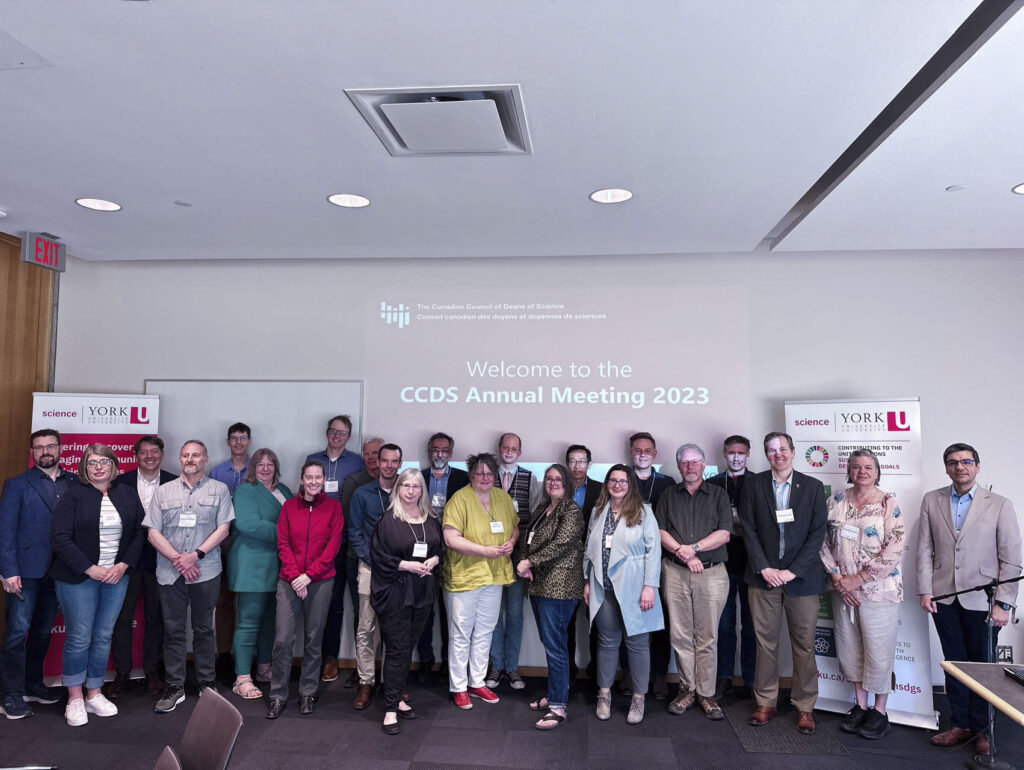York’s Faculty of Science hosted the 2023 Annual General Meeting of the Canadian Council of Deans of Science (CCDS) from May 12 to 14, to share knowledge and strengthen pan-Canadian advocacy for science education.
The three-day event was attended by 30 science and associate deans from universities across Canada, and featured talks by experts on topics including: research data storage and security; the emergence of AI (artificial intelligence) and its effect on academic integrity; student and employee mental health and well-being; equity, diversity, inclusion and accessibility (EDIA) in science education; an update on NSERC (the Natural Sciences and Engineering Research Council of Canada) funding mechanisms; and internationalization strategy.
“Our CCDS AGM presented a critical opportunity to build relationships with deans and associate deans in science education across our country,” says Rui Wang, dean of York’s Faculty of Science and CCDS president.

Several York community members played a role in guiding the AGM’s conversations. Provost & Vice-President Academic Lisa Philipps provided opening remarks, highlighting the rapid pace of change in academia, the need for administrators to be nimble and responsive and to promote ample dialogue with colleagues about a shared vision. Amir Asif, vice-president research and innovation, addressed attendees at the conference banquet, highlighting the recent successes of York’s Faculty of Science, including its prowess in infectious disease modelling, spectroscopy, and astronomical exploration, and calling for continued collaboration amongst CCDS member institutions.
The event also included a networking reception and tour of the Allan I. Carswell Observatory.
As a result of the AGM, moving forward the CCDS has committed to several united initiatives that will bolster the advocacy of science education, including:
- strengthening its effort to present an organized and united voice for science education and research across the nation, raising public awareness of the critical importance of science education and research, positioning science and research as a national priority, and working together with tri-council and other funding mechanisms to increase funding to science research program and the training of highly qualified personnel;
- continuing to facilitate institutional collaboration and communication via multiple channels for science education and research among all Faculties of Science in Canada;
- exploring channels to enhance its organizational functions to include leadership training possibilities for deans and associate deans of science; and
- promoting best practices and strategies, including but not limited to EDI, accessibility, student and employee well-being and mental health, international collaboration, emerging AI challenges on academic integrity, and research data storage and security among membership Faculties of Science of CCDS.
“We were successful in our objectives: to learn from each other, share knowledge about pressing issues and challenges in science education, and further our collective voice to help drive positive change by advocating for science education and research as a national priority,” says Wang.
